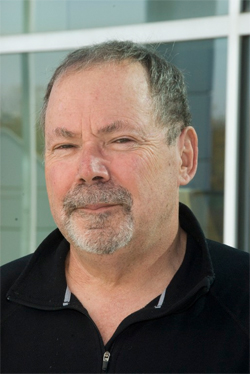Longtime Participant in Calit2 Becomes Data Science Associate Director at NIH
San Diego, Dec. 10, 2013 -- National Institutes of Health Director Francis S. Collins, M.D., Ph.D, announced Dec. 10 the selection of University of California, San Diego professor and vice chancellor Philip E. Bourne, Ph.D., as the first permanent Associate Director for Data Science (ADDS). Dr. Bourne – a longtime academic participant in Calit2 at UC San Diego – is expected to join the NIH in early 2014.
|
Bourne goes to the NIH from UC San Diego, where he is the Associate Vice Chancellor for Innovation and Industry Alliances in the Office of Research Affairs (ORA). He is also a Professor in the Department of Pharmacology and the Skaggs School of Pharmacy and Pharmaceutical Sciences. He also is the Associate Director of the Research Collaboratory for Structural Bioinformatics (RCSB) Protein Data Bank (whose 3D molecular visualizations are a staple of educational outreach and presentations in the StarCAVE virtual-reality environment of Calit2’s Qualcomm Institute at UCSD).
Bourne was trained as a physical chemist and obtained his Ph.D. from The Flinders University in South Australia. His professional interests focus on relevant biological and educational outcomes derived from computation and scholarly communication. This work involves the use of algorithms, text mining, machine learning, metalanguages, biological databases, and visualization applied to problems in systems pharmacology, evolution, cell signaling, apoptosis, immunology, and scientific dissemination. He has published over 300 papers and five books. As the creator of the SciVee science video portal and a co-founder of the open-source movement in scientific publishing, Bourne is extremely committed to furthering the free dissemination of science through new models of publishing and better integration and subsequent dissemination of data and results.
NIH’s Collins also recognized and thanked Eric Green, who served as the Acting ADDS since NIH announced the search to fill the new position. “His willingness to take on this challenging role in its inception, and to get the ball rolling on the enormous tasks that accompany this high-priority initiative, is sincerely appreciated,” said Collins. “Eric is certain to remain a tremendous source of knowledge and support as Phil continues the NIH's effort to manage 'Big Data'."
Media Contacts
Doug Ramsey, 858-822-5825, dramsey@ucsd.edu


